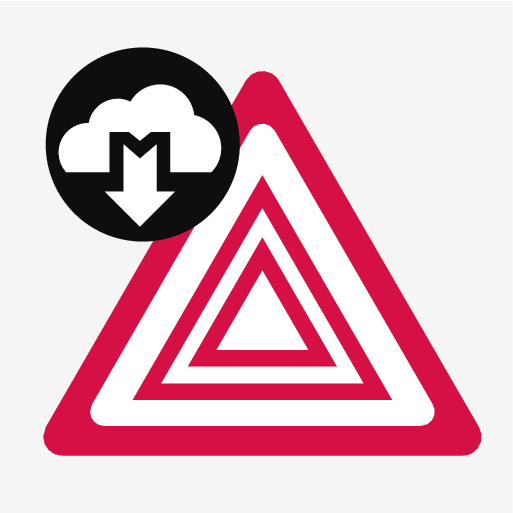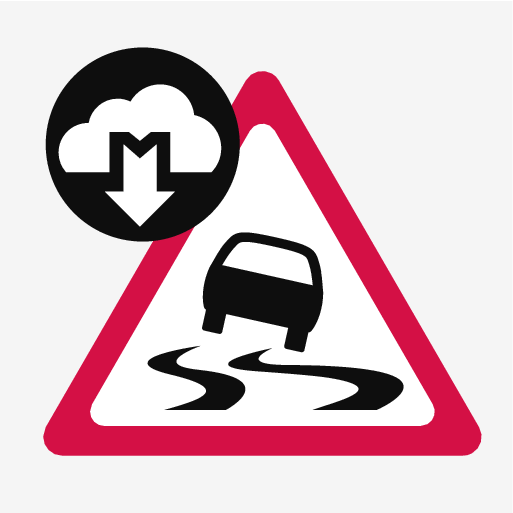Connected Safety1
The function can inform the driver whether another vehicle further ahead on the same road has activated its hazard warning flashers or detected slippery driving conditions. Information about slippery driving conditions is also given if your own car detects slippery surfaces.
- Alarm on hazard warning flashers
- Alarm on slippery driving conditions
Connected Safety communication between vehicles only works for vehicles equipped with the function and which have it activated.
Alarm on hazard warning flashers
If your own car's hazard warning flashers are activated, information about this can be sent to vehicles approaching your own car's position.

When your own car is approaching a vehicle with flashing hazard warning flashers, this symbol is shown on the driver display.
In vehicles with head-up display, the warning symbols for Connected Safety are also shown there.
Alarm on slippery driving conditions
If your own car detects reduced friction between your tyres and the road, information on this can be sent to vehicles approaching your own car's position.

If an ice alert is triggered, this symbol is displayed on the Driver display when a vehicle approaches the slippery road section, both in your own car and in other vehicles that have received the information via Connected Safety.
In vehicles with head-up display, the warning symbols for Connected Safety are also shown there.
Warning
- The function is supplementary driver support intended to facilitate driving and make it safer – it cannot handle all situations in all traffic, weather and road conditions.
- The driver is advised to read all sections in the Owner's Manual that relate to this function to learn about factors such as its limitations and what the driver should be aware of before using the system.
- Driver support functions are not a substitute for the driver's attention and judgement. The driver is always responsible for ensuring the car is driven in a safe manner, at the appropriate speed, with an appropriate distance to other vehicles, and in accordance with current traffic rules and regulations.